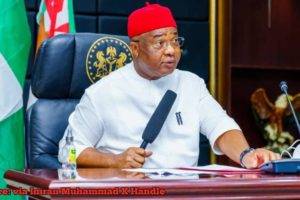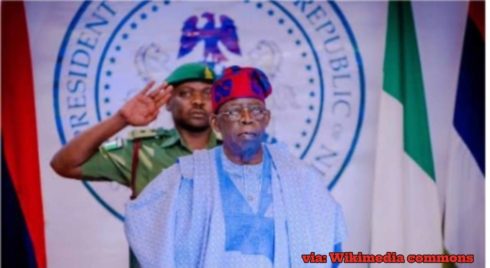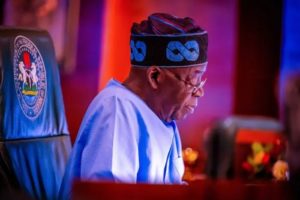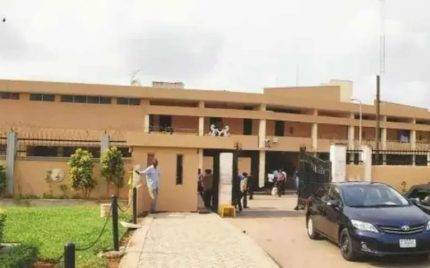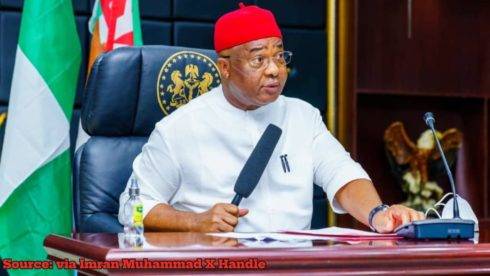In a dramatic turn of events, the Edo State House of Assembly has suspended three lawmakers amidst allegations of a clandestine scheme to impeach the Speaker and other principal officers. Speaker Blessing Agbebaku made the announcement during a tense plenary session on Monday, sending shockwaves through the political landscape of the state.
Among the suspended legislators is Donald Okogbe, a notable ally of Philip Shaibu, the former deputy governor of Edo. Notably, Okogbe abstained from signing the petition that catalyzed Shaibu’s impeachment, raising eyebrows and suspicions regarding his political allegiance. Joining Okogbe in suspension are Bright Iyamu and Adeh Isibor, representing PDP constituencies Akoko-Edo 11, Orihonmwon South, and Esan North-East 1 respectively.
According to Speaker Agbebaku, the suspended lawmakers have allegedly been manipulated by external forces to foment discord within the assembly, aiming to orchestrate a leadership overhaul. The suspension announcement triggered a chaotic scene within the Edo state assembly, as the affected lawmakers vehemently contested what they deemed as a unilateral decision by the speaker. Accusations of procedural irregularities flew as the lawmakers demanded a voting process, only to be met with an abrupt adjournment of the plenary session by Speaker Agbebaku, further escalating tensions within the legislative chamber.
Backlash and Controversy Surrounding the Suspension of law makers in Edo state assembly
The suspension of the three lawmakers has sparked outrage and controversy within Edo’s political circles, deepening existing fault lines within the state’s ruling party. Critics argue that the move reflects a desperate attempt by the leadership to stifle dissent and consolidate power, particularly in the aftermath of Shaibu’s contentious impeachment as deputy governor.
Donald Okogbe’s status as an erstwhile ally of Shaibu adds a layer of complexity to the unfolding saga, with speculations rife regarding the underlying motives behind his suspension. Some analysts interpret the suspension as a strategic maneuver to quell potential resistance against the embattled speaker, while others perceive it as a manifestation of internal power struggles within the ruling party.
The raucous scenes witnessed during the Edo assembly session underscore the deep-seated divisions and tensions simmering beneath the surface of Edo’s political landscape. As the fallout from the suspension reverberates across the state, questions linger regarding the implications for the stability and cohesion of the ruling party, and the broader implications for the democratic process in Edo State.
Tension Mounts as Suspended Lawmakers Protest
The suspension of the three lawmakers sparked immediate backlash and tension within the Edo State Assembly, culminating in a chaotic scene during the plenary session. The affected lawmakers vehemently opposed their suspension, denouncing Speaker Agbebaku’s unilateral decision and demanding a vote by the House members to address the matter.
In a display of defiance, the suspended lawmakers passionately voiced their objections, challenging the Speaker’s authority and calling for a democratic resolution to the issue. The heated exchange underscored the deep-seated divisions and animosities festering within the Edo state Assembly, laying bare the fissures threatening to destabilize the legislative body.
In response to the escalating turmoil, Speaker Agbebaku abruptly adjourned the plenary session, leaving the unresolved tensions simmering beneath the surface. The abrupt halt to proceedings reflects the precarious nature of the political climate in Edo State and raises concerns about the potential ramifications of the ongoing power struggle within the Edo state Assembly.
Historical Context and Implications for Edo Politics
The suspension of the lawmakers comes against the backdrop of heightened political volatility in Edo State, following the protracted power struggle that culminated in Shaibu’s impeachment as deputy governor. The fallout from Shaibu’s removal continues to reverberate within the corridors of power, reshaping the political dynamics and alliances within the state.
With the specter of a looming leadership crisis looming over the Edo state assembly, stakeholders are bracing for a protracted battle for control and influence within Edo’s political ecosystem. The suspension of the lawmakers underscores the high stakes involved in the power struggle, with far-reaching ramifications for the governance and stability of the state.
As Edo’s political landscape continues to evolve, the suspension saga serves as a stark reminder of the inherent fragility of democratic institutions in Nigeria, and the challenges confronting efforts to entrench a culture of transparency, accountability, and good governance. Ultimately, the resolution of the crisis will hinge on the ability of stakeholders to navigate the intricate web of political intrigue and forge a path towards reconciliation and consensus-building, in the interest of preserving the democratic ideals upon which the Nigerian state is founded.
Table of Contents
Discover more from OGM News NG
Subscribe to get the latest posts sent to your email.



